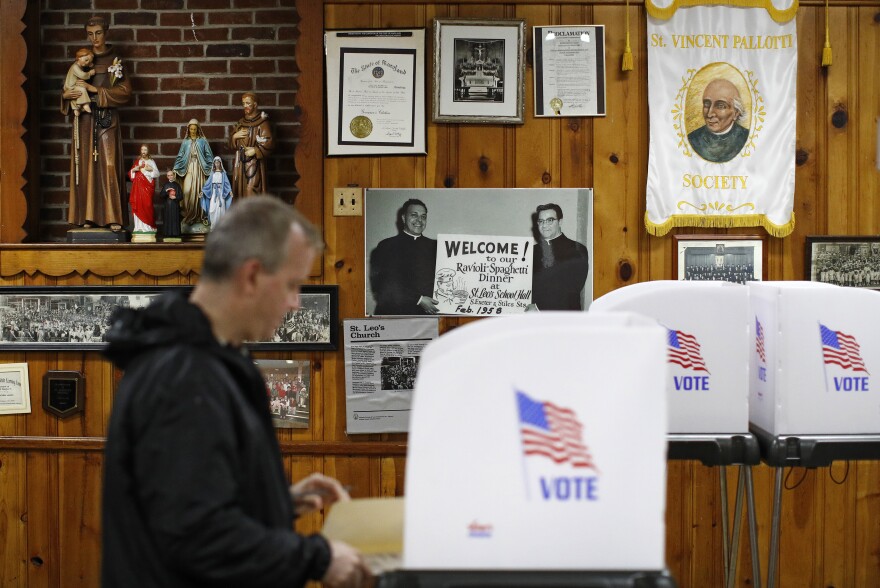It’s difficult to get voters to turn out for a special election, but the task of replacing someone as visible as Elijah Cummings might motivate Marylanders to cast their ballots in a special election primary this winter.
A whopping 32 candidates filed to run to take over the Baltimore icon’s 7th district Congressional seat: eight Republicans and 24 Democrats, including Cummings’ widow and two others who spoke at his funeral.
The seat has been vacant since Cummings’ death in October. The district includes much of Baltimore and parts of Baltimore and Howard counties.
Melissa Deckman, the Louis L. Goldstein Professor of Public Affairs and Chair of the Political Science Department at Washington College, says it's hard enough to get people to vote in primaries, let alone a special election.
“But given that there's been such attention focused on this race, I wouldn't be surprised if we find higher turnout than usual for this special election primary.”
That primary is just a few months away, on February 4. Before then, voters will likely be focused on the holiday season.
The challenge, Deckman said, is organizing -- the ability to kick off a vibrant campaign in a very short time span, to raise the kind of money required to run serious ads and events and to get a solid following throughout the district.
And in a race where 7th district voters must replace a mountain of a man, they’re looking for a certain kind of candidate.
“Elijah Cummings was viewed as a very strong advocate for civil rights, for urban areas. And then, of course, he went on to become a nationally recognized critic of the Trump administration and in terms of government oversight,” Deckman said. “So I think they're looking for someone who could possibly, not replace him, but at least rise to that sort of level of recognition within Congress, so they want someone in that seat who's going to be a champion for Baltimore City.”
Additionally, many studies show people tend to vote on name recognition. Given the district’s heavily blue makeup, Deckman said three candidates are likely to emerge as front runners:
Maya Rockeymoore Cummings, Kweisi Mfume and Jill Carter.
Maya Rockeymoore Cummings, 48, is a policy consultant, former chair of the Maryland Democratic Party and widow of Elijah Cummings. She recently underwent a preventative double mastectomy and will resume campaigning after a recovery period. Her policy priorities include improving education and healthcare and protecting Social Security and Medicare. She has said her late husband encouraged her to run for his seat.
Kweisi Mfume, 71, formerly occupied the 7th district seat. He stepped down in February 1996 to head the NAACP and was succeeded by Elijah Cummings, who won a similarly crowded special election run. Mfume grew up in poverty in Baltimore and says he is running to ensure that what Cummings “fought for is not lost, tossed to the side or forgotten.”
Jill Carter, 55, is a progressive state senator representing Baltimore City. She’s a longtime public servant and former public defender. She was also the director of the Baltimore City Office of Civil Rights and Wage Enforcement. She said her campaign will focus on criminal justice reform, racial equality and healthcare for all.
There are no major polls analyzing any of the candidates yet, but all of them will have to motivate their bases to show up.
The entire list of candidates can be found on Maryland’s board of elections website.





